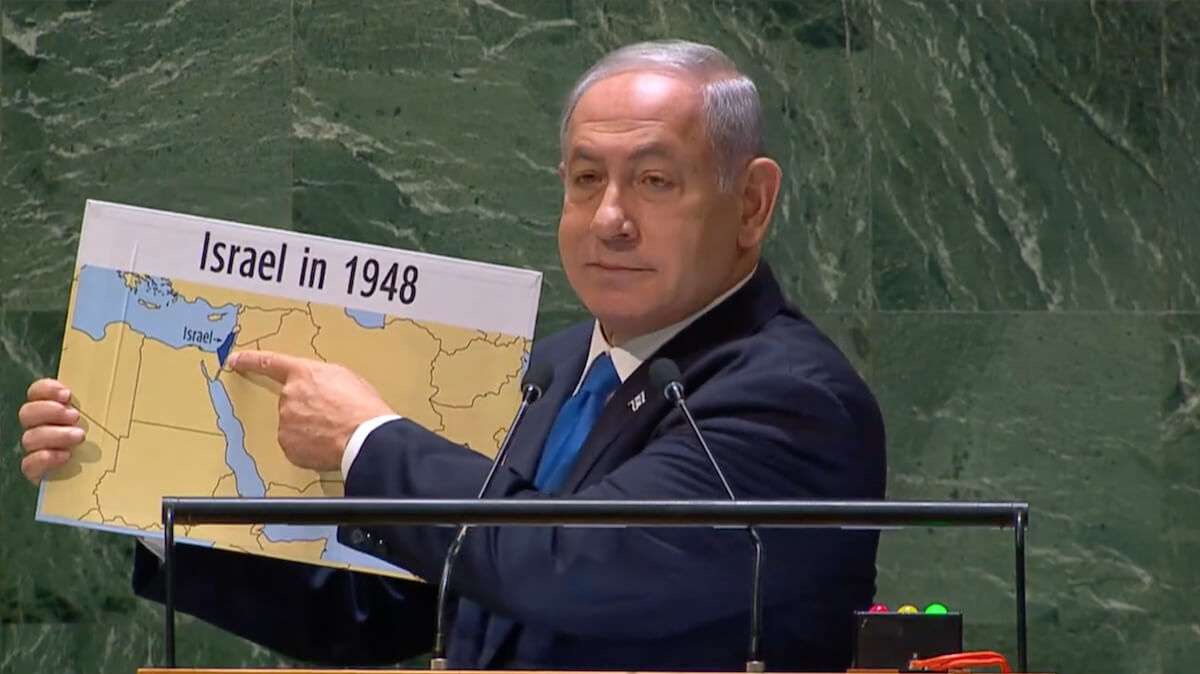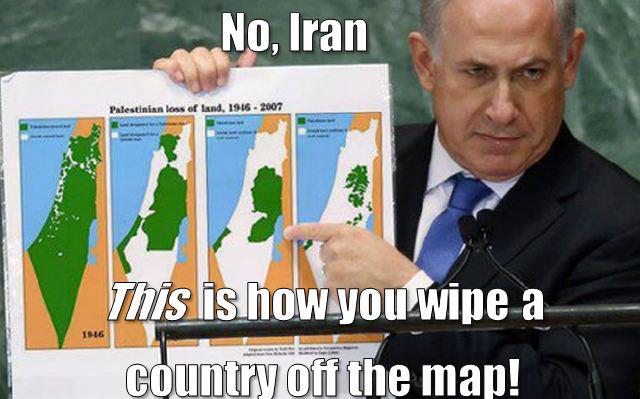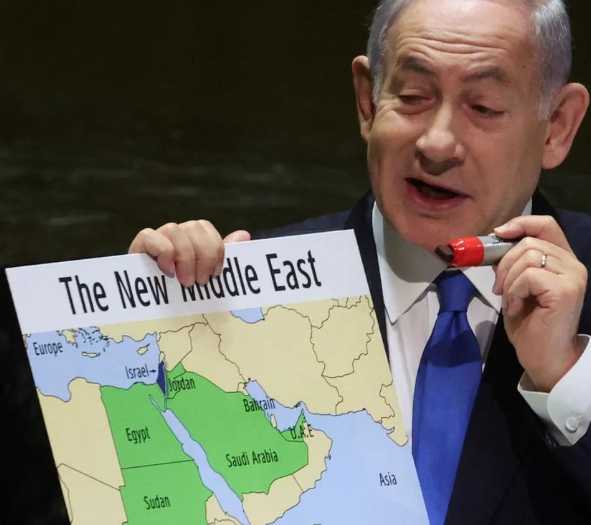
Netanyahu’s ‘Day After’ Plan for Gaza
Is Not Feasible and Is Not a Plan
Alon Pinkas / Haaretz
TEL AVIV (February 29, 2024) — Over 140 days into the Gaza war, almost five months after the United States asked him – as an ally – to provide ideas, a vision or a framework for postwar Gaza, Prime Minister Benjamin Netanyahu finally came up with a non-plan. A reasonable sounding but unviable list of principles that are untethered from reality. It was furtively released on Friday morning, as if the government had hoped no one would notice.
That was a wise decision, because it barely deserves notice or serious review. It is effectively a negation of the Biden plan, a list of statements that constitute open-ended Israeli control of Gaza with no political silver lining. Critically, it is just not feasible.
The document, essentially a list of unilateral statements rather than a coherent plan, is divided concisely into three time frames: a short paragraph on the immediate time frame; a five-clause description of the intermediate time frame in terms of the security realm and a four-clause description of the civilian reality. Then comes a two-clause “long-term,” grandstanding statement.
Let’s dissect it all point by point to understand what it does and does not mean, and why it is unviable.
The “immediate time frame” states that a prerequisite to reaching the so-called “day after” is that the Israel Defense Forces will “continue the war until its goals are achieved: the destruction of Hamas and Islamic Jihad’s military capabilities and governing infrastructure; the return of the hostages held in Gaza; and preventing any threat to Israel from the Gaza Strip in the future.”

In and of itself, this makes sense and appeals to the Israeli mind-set. However, it runs contrary to the American timeline and sequencing that assumes a hostage deal will be accompanied by a temporary but lengthy cease-fire, not by continuing the war. Secondly, it assumes that destroying Hamas militarily and politically is attainable without occupying the entire Gaza Strip for an extended period of time.
- The “intermediate time frame” is divided into security and civilian domains. The security dimension consists of five points, shortened here for clarity:
- Israel will maintain operational freedom, unlimited in time, throughout the entire Gaza Strip. Makes sense, right? Sure, if you realize that this necessarily means Israel will remain in Gaza for an indefinite period of time. You cannot install a governing apparatus in Gaza while Israel maintains full operational freedom. There are pros and cons to this concept, but it needs to be clear that an Israeli presence is assured.
- The security buffer zones in Gaza, adjacent to the Israeli border, will be maintained for as long as security needs and requirements warrant. That’s legitimate, as long as it is clear that according to this document Israel has no intention whatsoever of leaving Gaza.
- Israel will maintain a “southern closure” valve to prevent Hamas rearming. The closure will be operated with Egyptian cooperation and U.S. assistance as much as possible. That makes sense but is doubtful regarding Egyptian and American cooperation, given clauses one and two, and the stipulations of the “immediate time frame.”
- Israel will have “security control over the entire area west of the Jordan River.” What exactly “security control” means is not specified and the wording precludes any Palestinian sovereignty – even in the context of a demilitarized future Palestinian state.
- The Gaza Strip will be “totally demilitarized” and responsibility to implement and supervise this objective in the foreseeable future will be Israel’s. The concept of demilitarization has been a consistent and adamant Israeli position since theOslo Accordsof 1993, and was a basic tenet in the Camp David talks and ensuing Clinton Parameters detailing America’s vision of a future agreement in 2000. But the addition of Israel’s exclusive responsibility over both implementation and supervision translates into one reality: Israeli reoccupation of Gaza. How else can you implement and supervise demilitarization? That may be a valid idea in a political science simulation game. In reality, it is a nonstarter and an unfeasible proposition.

The civilian realm, meanwhile, includes four premises:
- Civil administration and responsibility for civil order will be based on “local elements with administrative and management experience.” Seriously? How many apolitical Palestinians qualify and meet this criteria? Or will Israel recruit those experienced Palestinian administrators at Sciences Po in Paris, or Harvard University? Or maybe these are Palestinian subcontractors working for Israel with zero legitimacy among the Palestinians? And how is this consistent with an international force that would govern Gaza? Or is it subject to clause five of the security structure, where Israel maintains full responsibility?
- “De-radicalization”: a plan to de-radicalize religious, education and welfare institutions in Gaza, “with the involvement and assistance of Arab states with proven experience in promoting de-radicalization.” This is a farcical clause as detached from reality as it’s possible to be. How will Israel “de-radicalize” Gaza? How will Israel incentivize this process? Which Arab states have such a record? And, by the way, the question of whether Israel will do the same is bound to arise.
- Israel will work toward shutteringthe UN Relief and Works Agency, “whose employees were involved in the October 7 massacre. Israel will seek to discontinue UNRWA’s operations and replace it with other, responsible, international welfare agencies.”
Really? Which ones exactly? And what is Israel’s standing in international organizations that leads someone to think this is doable? And what about U.S. intelligence assessments that question Israel’s findings, at least in scope, regarding the UNRWA relief agency’s complicity with Hamas? That UNRWA is ineffective, disruptive and hostile to Israel has been known for years. Shutting it down is not something Israel is capable of doing, so why raise it?
- “Gaza reconstruction will only begin once demilitarization has been completed and de-radicalization commenced. … Reconstruction will be conducted and funded by countries acceptable to Israel.” In other words, it will never be done. This clause also suggests Israel has no intention of leaving Gaza and arrogantly instructs countries willing to fund the reconstruction to wait for an Israeli green light.

But there is no line of Arab or other countries just itching to spend billions. Second, the one condition Saudi Arabia, Qatar and the United Arab Emirates are making is the eventual establishment of a Palestinian state – something Israel is unwilling to consider.
Now comes the long-term vision, described as “fundamental rules for future settlement.” Don’t hold your breath. There’s nothing here but two self-righteous proclamations taken from last week’s government statement.
First, Israel “rejects prima facie international diktatsregarding a final settlement with the Palestinians. An agreement can only be achieved through direct negotiations between the sides without preconditions.” This is a bogus argument, consistent with Netanyahu’s manipulation and gaslighting. For a decade he refused to negotiate with the Palestinians, impossible interlocutors themselves. Furthermore, there are no international “diktats” but countries, particularly the United States, reiterating their long-standing policy, whether Israel likes it or not. Lastly, “no preconditions” is a valid argument. But isn’t the entire document until now a list of Israeli preconditions and diktats?
Second, “Israel will continue to oppose unilateral recognition of a Palestinian state. … Such recognition would, in the aftermath of October 7, be a reward for terrorism and prevent any future peace settlement.”
This is rich, even by generous grandstanding standards. Unilateral? By whom? Over 100 countries already indicated their intention to recognize a Palestinian state. It is Israel that is unilaterally against it, even if for arguably valid reasons. More importantly – however problematic one views such recognition of a provisional future state – how and why would it prevent a peace settlement?
Netanyahu’s current approval rating is abysmal. He is steady at 19 percent – which is less than the number of Americans who think Elvis Presley is still alive. In polls, his governing coalition of 64 lawmakers gets between 38 and 47 seats, depending on the formation of new parties. Seventy-five percent of the Israeli public and 67 percent of previous Likud voters see him as responsible for the October 7 debacle; 71 percent believe he should resign and 66 percent favor an election as soon as possible.
With such numbers, his last gamble is to invent a “Palestinian state crisis” and confront the United States. This is what the “non-plan” plan is all about. It only emphatically proves that there was never a plan.
Posted in accordance with Title 17, Section 107, US Code, for noncommercial, educational purposes.